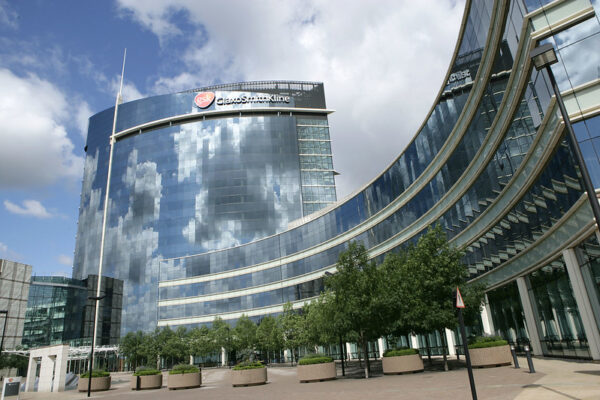
The company that could become the first to hit the market with a therapy targeting a protein widely expressed in multiple myeloma cells is highlighting new data from two Phase II clinical trials ahead of a major cancer meeting.
London-based GlaxoSmithKline released follow-up data Wednesday from the DREAMM-2 study of belantamab mafodotin, its antibody-drug conjugate that targets the protein BCMA, along with initial data from the DREAMM-6 study. Data from both studies are being presented at the American Society of Clinical Oncology’s annual meeting, which ordinarily would take place in Chicago but this year is being held virtually due to Covid-19.

Health Executives on Digital Transformation in Healthcare
Hear executives from Quantum Health, Surescripts, EY, Clinical Architecture and Personify Health share their views on digital transformation in healthcare.
The drug is currently under review by the Food and Drug Administration, which accepted and granted priority review to GSK’s application in January. A decision of whether or not to approve the drug is anticipated in the first half of the year.
The data from DREAMM-2, the registration-directed study of the drug, were from a 13-month follow-up and showed a median overall survival of 14.9 months, along with an 11-month median duration of response among patients receiving the drug as a monotherapy at a dose of 2.5mg/kg. The overall response rate was consistent with prior data, 32% in a population of 97 patients, with 58% of responders achieving a very good partial response or better. Patients in the study were heavily pretreated, having received a median seven prior therapies. The abstract for the study provides a rate of overall survival at one year of 53%.
DREAMM-6 is testing belantamab mafodotin in combination with bortezomib and dexamethasone, in patients with relapsed or refractory myeloma who have received at least one prior therapy. The data showed that the combination produced an overall response rate of 78% among 18 patients, including 50% who received a very good partial response and 28% who achieved a partial response. After 18.2 weeks of treatment, the median duration of response had not yet been reached.
2020 is a big year for BCMA-targeting therapies at ASCO, with data on several being presented. Others include Johnson & Johnson’s teclistamab, a bispecific monoclonal antibody, J&J’s BCMA-targeting CAR-T therapy, JNJ-4528, as well as Bristol-Myers Squibb CAR-T orvacabtagene autoleucel and idecabtagene vicleucel, which BMS is developing with bluebird bio.

Reducing Clinical and Staff Burnout with AI Automation
As technology advances, AI-powered tools will increasingly reduce the administrative burdens on healthcare providers.
The BMS-bluebird CAR-T was also expected to win approval this year, though earlier this month the FDA sent the companies a refuse-to-file letter. As a result, they plan to resubmit their application and request a priority review by the end of July.
Photo: GlaxoSmithKline








